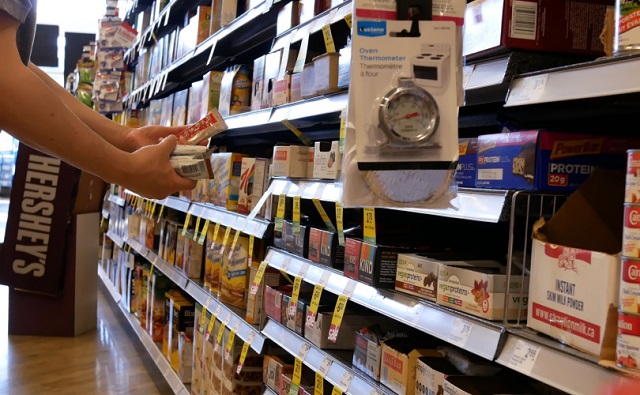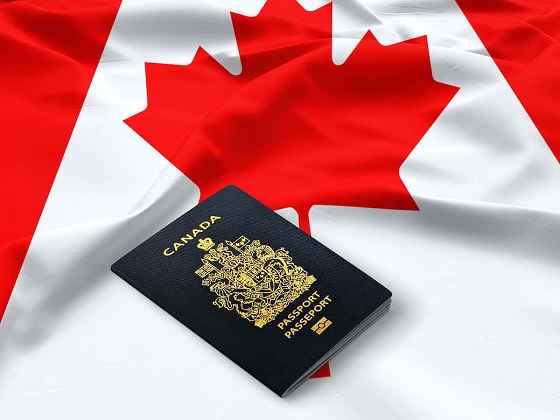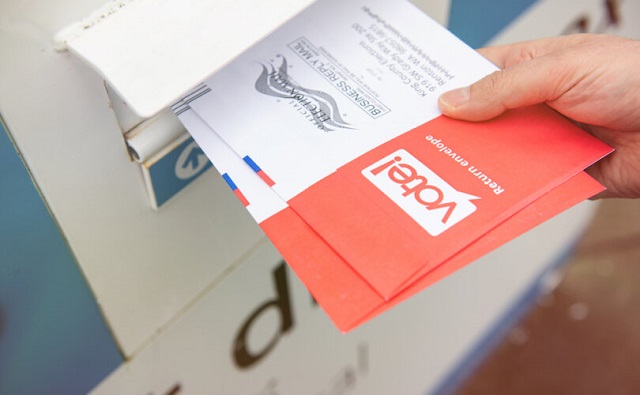Economy
High food costs causing some Canadians to feel ‘hopeless’ and ‘desperate’: gov’t report

From LifeSiteNews
The Department of Social Development stated in a recent briefing note that the nation’s poverty rate could increase by 14% this year due to high food prices.
The Canadian government’s own National Advisory Council on Poverty (NACP) observed in a recent update to the nation’s Parliament that fast-rising food costs in Canada have led to many people feeling a sense of “hopelessness and desperation” with nowhere to turn for help.
As noted by Blacklock’s Reporter, NACP stated last week in a report to Parliament that its coming 2024 spring figures regarding the poverty rate in Canada show it standing at 9.8%, affecting some four million Canadians, compared with a low of 6.4 in 2020.
“We noted a growing sense of hopelessness and desperation,” the NACP said in its report titled Blueprint for Transformation.
NACP observed how persons with lived “expertise of poverty and service providers alike told us things seem worse now than they were before and during the first years of the pandemic.”
“We heard that people are worried about the rising cost of living and inflation,” the report added.
According to the NACP report, more people are in “crisis and these crises are more visible in our communities.”
NACP said that recent increases in cost of living “represent one of the most important socioeconomic challenges faced by people living in Canada following the onset of the Covid-19 pandemic.”
High living costs in Canada will “put upward pressure on poverty rates,” the NACP said.
NACP observed that in speaking with people, it seems as “though the feelings of hopefulness and optimism for change that we saw early in the pandemic have faded.”
“Hopelessness and desperation have replaced these as the cost of living continues to increase,” NACP documented.
Food costs are going up so fast that even Canada’s own Department of Social Development in a recent briefing note stated that the nation’s poverty rate could increase by 14% this year due to high food prices.
Under Prime Minister Justin Trudeau, due to excessive COVID money printing, inflation has skyrocketed.
A report from September 5, 2023, by Statistics Canada shows food prices are rising faster than headline inflation at a rate of between 10% and 18% per year.
According to a recent Statistics Canada supermarket survey of prices, Canadians are now paying 12% more for carrots, 14% more for hamburger (ground meat), and some 27% more for baby formula.
“Chronic issues are becoming more acute,” the Council on Poverty wrote. “These include inadequate income, unmet housing needs and houselessness, food insecurity and worsening physical and mental health.”
NACP noted that although poverty rates fell between 2015 and 2020, these declines were not “sustained” and the rates will now “increase even further.”
Trudeau’s carbon tax adds to high inflation and food costs and should be ‘scrapped’
Last year, the Bank of Canada acknowledged that Trudeau’s federal “climate change” programs, which have been deemed “extreme” by some provincial leaders, are indeed helping to fuel inflation.
Franco Terrazzano, federal director of the Canadian Taxpayers Federation, told LifeSiteNews that Trudeau should “completely scrap his carbon tax,” as it is making everything more expensive.
Terrazzano said at the “very least” Trudeau should “extend the same relief he provided to Atlantic Canadians and take the carbon tax off everyone’s home heating bill.”
In October, amid dismal polling numbers that showed his government would be defeated in a landslide by the Conservative Party come the next election, Trudeau announced he was pausing the collection of the carbon tax on home heating oil in Atlantic Canadian provinces for three years.
LifeSiteNews has earlier reported on Trudeau’s carbon tax costing Canadians hundreds of dollars annually, as government rebates it gives out are not enough to compensate for high fuel costs.
A report by four Canadian universities in December showed that an average family of four will spend approximately $16,297 on groceries in 2024.
CBDC Central Bank Digital Currency
A Fed-Controlled Digital Dollar Could Mean The End Of Freedom

 From the Daily Caller News Foundation
From the Daily Caller News Foundation
Central bank digital currencies (CBDC) are a threat to liberty.
Sixty-eight countries, including communist China, are exploring the possibility of issuing a CBDC. CBDCs are essentially government-sponsored cryptocurrencies pegged to the value of a national currency that allow for real-time payments.
The European Union has a digital euro CBDC pilot program, and all BRICS nations (Brazil, Russia, India, China and South Africa) are working to stand up CBDCs. China’s CBDC pilot, the largest in the world, is being used by 260 million individuals.
While faster payments are a positive for markets and economic growth, CBDCs present major risks. They would allow governments to meticulously monitor transactions made by their citizens, and CBDCs open the door for government planners to limit the types of transactions made.
Power corrupts, and no government should have that level of control. No wonder China and other authoritarian regimes around the globe are eager to implement a CBDC.
Governments that issue CBDCs could prohibit the sale or purchase of certain goods or services and more easily freeze and seize assets. But that would never happen in the U.S, right? Don’t be so certain.
Take a look at recent events in our neighbor to the north. The government of Canada shut down bank accounts and froze assets of Canadian citizens protesting the COVID-19 vaccination in Ottawa during the winter of 2022. With a CBDC, authoritarian actions of this kind would be even easier to execute.
To make matters worse, the issuance of a CBDC by the Federal Reserve, the U.S.’s central bank, has the potential to undermine the existing banking system. The exact ramifications of what a CBDC would mean to the banking sector are unclear, but such a development could position the Fed to offer banking services directly to American businesses and citizens, undercutting the community banks, credit unions, and other financial institutions that currently serve main street effectively.
The Fed needs to stay out of the banking business – it’s having a hard enough time achieving its core mission of getting inflation under control. A CBDC would open the door for the Fed to compete with the private sector, undercutting economic growth, innovation, and financial access in the process.
Fed Chair Jerome Powell has testified before Congress that America’s central bank would not issue a CBDC without express approval from Congress, but the Fed has studied CBDCs extensively.
For consumers who want the ability to make real-time payments internationally, CBDCs are not the answer. Stablecoins offer a commonsense private sector solution to this market demand.
Stablecoins are a type of cryptocurrency pegged to the value of a certain asset, such as the U.S. dollar. If Congress gets its act together and creates a regulatory framework for stablecoins, many banks, cryptocurrency firms, and other innovative private sector entities would issue dollar-pegged stablecoins. These financial instruments would allow for instantaneous cross-border payments for market participants who find that service of value.
Stablecoins are the free market response to CBDCs. They offer the benefits associated with the technology without the privacy risk, and they would likely enhance, not disrupt, the existing banking sector.
Representatives Patrick McHenry (R-N.C.) and French Hill (R-Ark.) have done yeoman’s work advancing quality, commonsense stablecoin legislation in the House of Representatives, and the Senate needs to move forward on this issue.
Inaction by Congress will force innovators overseas and put the U.S. at a competitive disadvantage. It would also help the Fed boost the case for a CBDC that will undermine liberty and open the door to government oppression.
Tommy Tuberville is a Republican from Alabama serving in the United States Senate. He is a member of the Senate Agriculture Committee, which plays a key role in overseeing emerging digital assets markets.
Business
Taxpayers criticize Trudeau and Ford for Honda deal

From the Canadian Taxpayers Federation
Author: Jay Goldberg
The Canadian Taxpayers Federation is criticizing the Trudeau and Ford governments to for giving $5 billion to the Honda Motor Company.
“The Trudeau and Ford governments are giving billions to yet another multinational corporation and leaving middle-class Canadians to pay for it,” said Jay Goldberg, CTF Ontario Director. “Prime Minister Justin Trudeau is sending small businesses bigger a bill with his capital gains tax hike and now he’s handing out billions more in corporate welfare to a huge multinational.
“This announcement is fundamentally unfair to taxpayers.”
The Trudeau government is giving Honda $2.5 billion. The Ford government announced an additional $2.5 billion subsidies for Honda.
The federal and provincial governments claim this new deal will create 1,000 new jobs, according to media reports. Even if that’s true, the handout will cost taxpayers $5 million per job. And according to Globe and Mail investigation, the government doesn’t even have a proper process in place to track whether promised jobs are actually created.
The Parliamentary Budget Officer has also called into question the government’s claims when it made similar multi-billion-dollar handouts to other multinational corporations.
“The break-even timeline for the $28.2 billion in production subsidies announced for Stellantis-LGES and Volkswagen is estimated to be 20 years, significantly longer than the government’s estimate of a payback within five years for Volkswagen,” wrote the Parliamentary Budget Officer said.
“If politicians want to grow the economy, they should cut taxes and red tape and cancel the corporate welfare,” said Franco Terrazzano, CTF Federal Director. “Just days ago, Trudeau said he wants the rich to pay more, so he should make rich multinational corporations pay for their own factories.”
-

 Automotive1 day ago
Automotive1 day agoThe EV ‘Bloodbath’ Arrives Early
-

 CBDC Central Bank Digital Currency1 day ago
CBDC Central Bank Digital Currency1 day agoA Fed-Controlled Digital Dollar Could Mean The End Of Freedom
-

 Business2 days ago
Business2 days agoHonda deal latest episode of corporate welfare in Ontario
-

 Frontier Centre for Public Policy22 hours ago
Frontier Centre for Public Policy22 hours agoHow much do today’s immigrants help Canada?
-

 espionage2 days ago
espionage2 days agoOne in five mail-in voters admitted to committing voter fraud during 2020 election: Rasmussen poll
-

 Brownstone Institute1 day ago
Brownstone Institute1 day agoThe Numbers Favour Our Side
-

 Fraser Institute2 hours ago
Fraser Institute2 hours agoFederal government’s fiscal record—one for the history books
-

 Alberta1 hour ago
Alberta1 hour agoRed Deer Company fined $360,000.00 after 2022 workplace fatality







